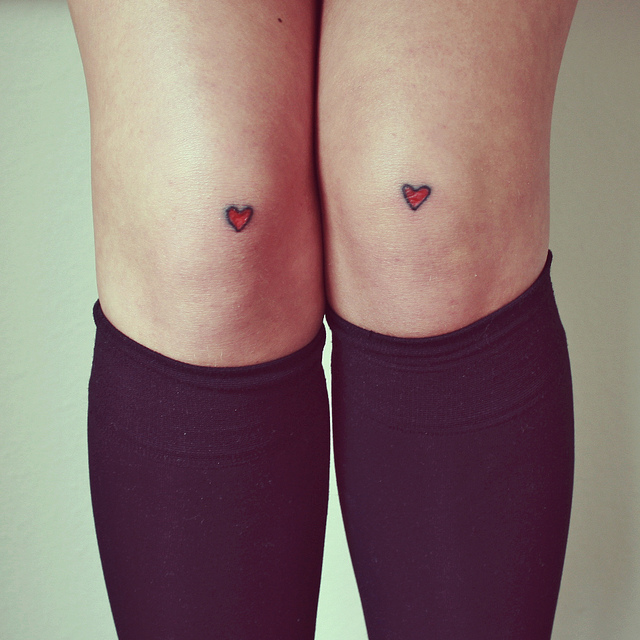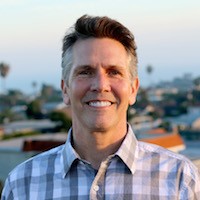
I can’t even count the number of times I sat in self-judgment wallowing in the guilt and shame of my poor choices.
The guilt and shame were often accompanied by a hangover and a prayer that went something like this:
“God, please take away this headache and while you’re at it, take the guilt and shame that I feel. If you take this from me I will really try to change this time.”
Having grown up Catholic, I was taught that my God was a god of clean slates. If I went into the small booth with the priest on the other side of the screen and confessed my “sins,” I could reel off a few Hail Marys and an Our Father, and voila, the slate was clean like shaking an Etch A Sketch.
As I grew and started questioning my religious beliefs, I told myself there was no need to share my shortcomings with a man. I could cut out the middleman and go directly to God to get this same forgiveness, the same clean slate. The problem was that once the slate was clean, I would work my way right back into the same mess over and over again.
~
One of the most important things you can do for your vagina and your sex life—to avoid a world of problems later? Check out this device and get a free bag of craft coffee (code; EJCOFFEE)>>
~
There seemed to be something missing from this forgiveness formula because it didn’t change me. It made me feel better short term, but it didn’t give me the tools to make a lasting change. What was missing?
There was a piece missing that would not allow me to complete the forgiveness puzzle.
As a kid, I loved puzzles. I remember setting up a card table and laying all the pieces out. With the box top in front of me, I could see what the puzzle would look like when I finished and I began the puzzle making process.
I was very systematic in my approach. First, find all the flat edges. Then I would begin making the border of the puzzle. I’d find the pieces with the same color and pop them together. Once I had the outer framework complete, I would find pieces with similar patterns and colors that would fit together and start forming small sections within the big picture. As more and more small sections came together I could see how they connected to form the whole.
On one occasion, I got all the way down to the last piece and realized it was missing. Nooooooooo! This couldn’t be. I had put together 1499 pieces but the one that was missing kept me from completing the puzzle. It was nowhere to be found. I searched everywhere but the one final piece was missing and the puzzle was not complete. There was no satisfaction in completing 1499/1500 of the puzzle.
Later in my life I realized the forgiveness puzzle was quite similar. I knew that God gave me 1499 pieces through His forgiveness, yet the picture of change was not complete.
I needed to come up with the final piece: I had to forgive myself.
You see, I could not get the full picture of a new me until I let myself off the hook. Until I realized I was worth the forgiveness of God, the picture would never be complete.
In reality, we cannot see the image of a new self until we really forgive the old self. If we hold onto that negative view of our self, based on the choices we have made in the past, we will not release our mind to see the image of the person God created us to be.
So let’s complete the forgiveness puzzle with self-forgiveness. Let go of the judgment. Let go of the guilt. Let go of the shame. The past will never be any different so we must learn to forgive ourselves. Self-forgiveness is a powerful healing process because it is the inner action of releasing judgment, of giving love and compassion to oneself. But how do we do this?
Here is a three-step process to self-forgiveness:
1. Close your eyes and get comfortable. Place your hand over your heart, breathe deeply and feel your heart open, evoking a sense of compassion.
2. Become clear on the area where you have been unable to forgive yourself and the judgment. It may be a behavior, a belief, or an instance you regret.
3. Move into compassionate self-forgiveness by saying the words of forgiveness to yourself, either silently or out loud. My experience has been that saying them out loud has a more profound impact. Here are some examples:
“I forgive myself for judging myself as not good enough.”
“I forgive myself for the misunderstanding that I had to perform in a certain way to be loveable.”
“I forgive myself for buying into the belief that my worth and lovability is dependent upon what I say or do.”
This is about acknowledging our humanity and recognizing that we always do the best we know how, even when our behaviors fall below our expectations. We must first recognize this to finish the puzzle and see the complete picture of the life we desire.
~
Author: Scott Chantos
Image: Hilary Boles/Flickr
Editor: Katarina Tavčar
Ready to join?
Hey, thanks so much for reading! Elephant offers 1 article every month for free.
If you want more, grab a subscription for unlimited reads for $5/year (normally, it's $108/year, and the discount ends soon).
And clearly you appreciate mindfulness with a sense of humor and integrity! Why not join the Elephant community, become an Elephriend?
Your investment will help Elephant Journal invest in our editors and writers who promote your values to create the change you want to see in your world!
Already have an account? Log in.
Ready to join?
Hey, thanks so much for reading! Elephant offers 1 article every month for free.
If you want more, grab a subscription for unlimited reads for $5/year (normally, it's $108/year, and the discount ends soon).
And clearly you appreciate mindfulness with a sense of humor and integrity! Why not join the Elephant community, become an Elephriend?
Your investment will help Elephant Journal invest in our editors and writers who promote your values to create the change you want to see in your world!
Already have an account? Log in.

 Share on bsky
Share on bsky






Read 0 comments and reply